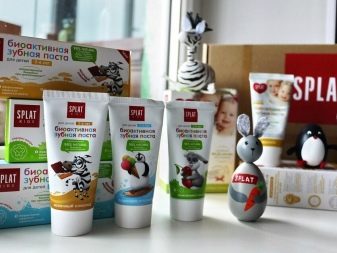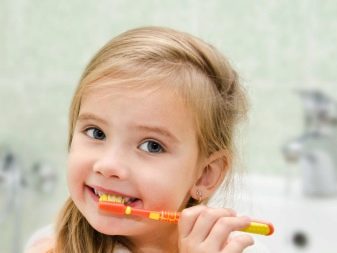When to start brushing your baby's teeth?
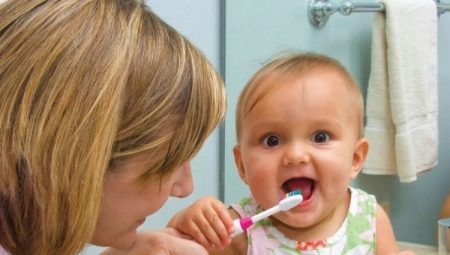
Caring for the child, his health, well-being, development is the main task that parents face. Many young and still completely inexperienced mothers and fathers are faced with many situations for the first time in their lives, and they have many questions, one of which is when to start brushing a child's teeth.
The question is very relevant and correct, it is often addressed to both pediatricians and dentists, and various forums are re-read. In this article, we will try to give the most accurate and correct information about when to start teaching your baby to brush his teeth.
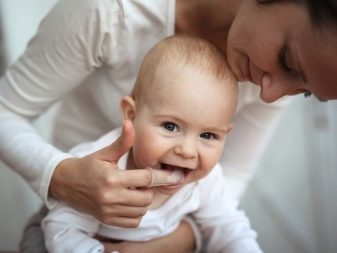
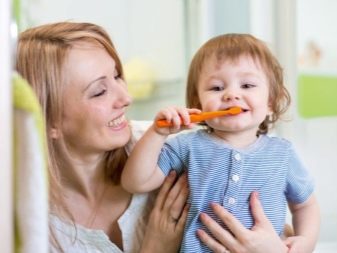
Suitable age
It is imperative for a child to brush his teeth, this is the golden rule that every parent must learn. Hygiene of teeth and oral cavity is a guarantee of health and a real opportunity to avoid unpleasant, especially for children, visits to the dentist. But when is the right age to start brushing your child's teeth? The fact is that no one can give a clear answer, because everything depends on the physiology and active development of the baby himself.
In one child, teeth begin to erupt at 4-6 months, in another at 9, and so on. There is a lot of controversy over this issue. Someone argues that there is no need to teach a baby to brush his teeth while he is breastfed, others, in general, wait until he is 2-3 years old.
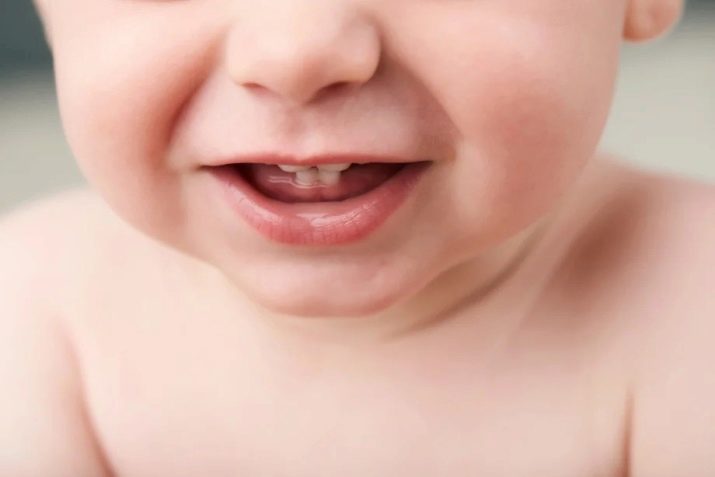
But in fact, you need to teach your child to brush their teeth as early as possible. This is necessary for several reasons.
- Prevents tooth decay. Baby's milk teeth are more prone to caries than permanent adults.This is due to the peculiarities of the enamel, which is soft and thin in young children. Damage to the enamel on children's teeth by caries is fraught with the appearance of diseases such as tonsillitis and pyelonephritis.
- Prevents toothache. If you do not follow the hygiene and cleanliness of the child's oral cavity, his teeth will start to hurt, as various bacteria will appear and multiply in the mouth over time. Most often, such situations end with a visit to the dentist's office and the removal of a diseased tooth. Milk teeth should naturally fall out. Otherwise, if the doctor pulls out a tooth earlier than he was going to fall out, the bite may be broken, and other teeth may be crooked.
- Prevents the development of infectious diseases. Even if the baby is still breastfed and does not consume any food other than milk, but his teeth have already erupted, they need to be cleaned.
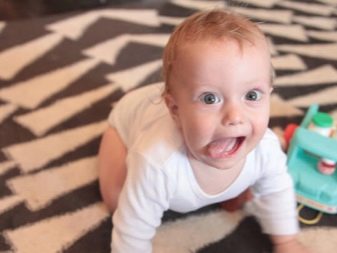

Let's look at what can be used to brush a child's teeth, depending on his age.
- Up to 6 months this can be done with a gauze swab dipped in boiled water, a fingertip napkin, or a dental napkin. The napkin-fingertip perfectly cleans the gums and teeth from plaque, relieves pain from teething and prevents caries. Dental wipes serve as an excellent cleanser and disinfectant - a kind of safe antiseptic.
- From 6 months to a year old, brushing your teeth can be done with a soft silicone brush. It is absolutely safe, equipped with a comfortable and non-slip handle, does not harm the gums and teeth, and does not cause painful sensations. With the help of such a brush, the baby can even try to brush his teeth on his own.
- From the age of 2, you can already give your child a real toothbrush. You need to choose a brush whose head diameter does not exceed 1.5 centimeters. Her bristles should be soft, the handle should be comfortable, and the edges should be as rounded as possible.
It is very important to choose the right toothbrush for your child, and most importantly, a safe one. When buying, you do not need to consider the cheapest options, most likely, such a product does not have a high quality and level of safety. Take care of the health of your child's teeth and mouth, buy a good brush from a reliable and trusted manufacturer.
It is best to buy from pharmacies or specialty stores. In such places, certified and high-quality products are most often sold.
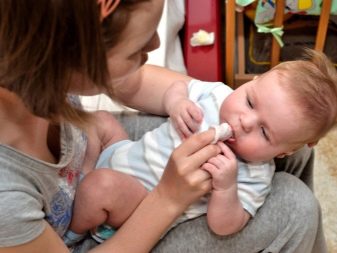
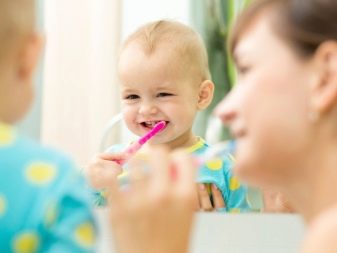
Children's toothpaste is another important aspect of children's oral hygiene. The choice of children's toothpaste should be approached as responsibly as the choice of a toothbrush. There is a wide selection and assortment of toothpastes for baby milk teeth on the modern market. There are a number of aspects to pay attention to.
- The composition of the product. In no case should fluoride or any other abrasive substance, dyes or preservatives be included in the toothpaste for children. It should be characterized by the presence of xylitol, natural medicinal plants, lactic enzymes, calcium, trace elements in the composition.
- It is desirable that the hygiene product is tasteless, or there is a slight hint of mint in it.
- Shelf life. This information must be indicated by the manufacturer on the tube.
- Permissible age of the child.
- Manufacturer. Just like when choosing a toothbrush, it is better to give preference to, albeit a more expensive, but reliable brand.
Dentists say that you cannot brush your child's teeth with toothpaste if he is not yet 1.5 years old.
Remember: if you have any doubts about choosing a paste or brush, it is best to seek advice from a specialist, namely, a pediatric dentist. A qualified doctor will examine the baby's oral cavity and advise exactly those hygiene products that are suitable.
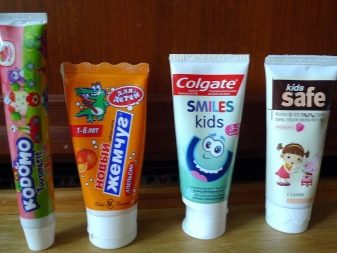
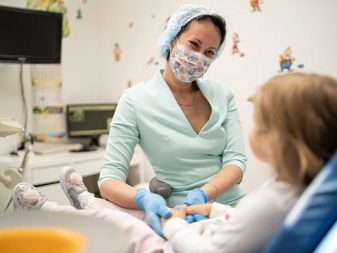
When can I start brushing my teeth on my own?
All children are absolutely different. Someone is more independent, others like to be courted.It all depends solely on the child himself and on how the parents themselves prepare the baby for this process. Taking into account the experience and recommendations of specialists, it is safe to say that a child aged 2 years and older can easily cope with brushing their teeth on their own.
If, from the moment the teeth appear, the child is familiar with toothpaste, a brush and knows how to clean, there is no need to delay this moment. The sooner the baby learns to brush his own teeth, the better.
Consider what the parents need to do so that everything goes smoothly, and the child himself wants to brush his teeth on his own.
- The main thing is to get a safe toothbrush, which will not cause painful sensations during the cleaning process, and a paste. The toothpaste may have some flavor - children like it.
- Explain and show how exactly you need to clean, so as not to miss a single tooth.
- Teach your kid to hold a toothbrush in his hands.
- Talk about how cool it is to be independent.
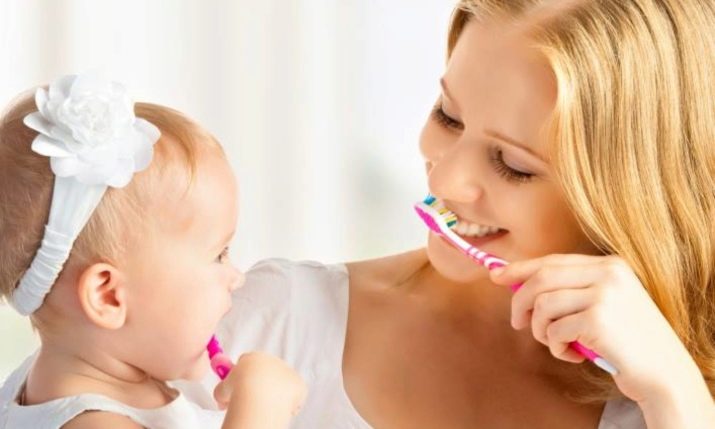
Practice shows that all children copy the behavior of their parents. That is why, in order to simplify the process, mom or dad should cooperate with their child in the morning and in the evening - and go and brush their teeth together. Be an example to your child. And after a while, the baby, having adopted the experience of his parents, will begin to brush his teeth himself.
Of course, there are repeated cases when the baby flatly refuses to become independent. Most often this is due to the fact that the child is afraid of the toothbrush, perceives it as some kind of enemy object. In such situations, you do not need to show pressure. Better to act carefully. You need to talk to the child, find out the reason for his fears, even go to the store with him - let him choose for himself a brush that he likes.
Various psychological techniques help well, when brushing your teeth turns into some kind of interesting game, which is accompanied by songs or dances. The main thing is not to overdo it, so that it does not become a habit.
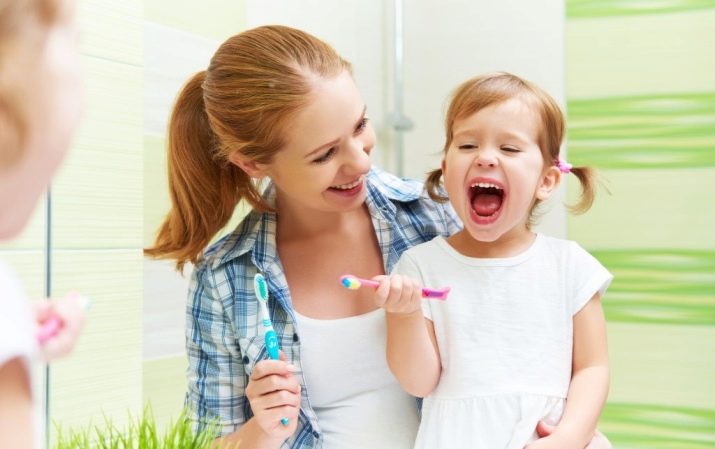
Psychologists recommend not to let things go by themselves. Some parents are sure that when the time comes, the child will take both the brush and the toothpaste and begin to brush his teeth. No, if you don't teach him to do this, he will not start to monitor oral hygiene.
How old can you switch to an adult toothpaste?
Pediatric dentists unanimously recommend that parents not rush to teach their child to brush their teeth with an adult toothpaste. According to experts, children's milk teeth can be damaged by adult toothpaste. It's no secret that such hygiene products can contain chemical components and aggressive substances, which is why they cope so well with plaque, tartar and gum disease.
If parents prematurely teach their child to brush their teeth with adult toothpaste, there is a high probability that the enamel on children's milk teeth will be damaged, and this is fraught with serious consequences.
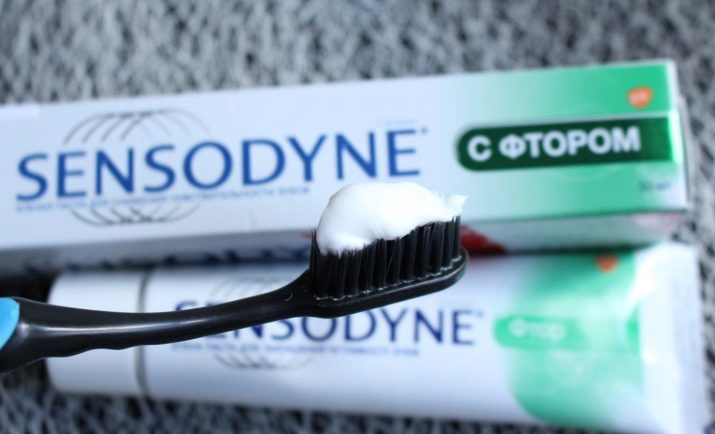
Absolutely all adult toothpastes contain fluoride, an element that is categorically not recommended for children.
From the foregoing, it follows that a child can begin to brush his teeth with paste for adults only when all milk teeth have fallen out and already permanent ones have grown. Permanent teeth are strong, the enamel on them is no longer soft, and the oral mucosa itself by that time will not suffer from the same fluoride or other abrasive components.
Considering the large assortment of children's toothpastes, which are safe, natural and perfectly cope with such common diseases as carious manifestations, it is not worth rushing to switch to means of a different age level.
